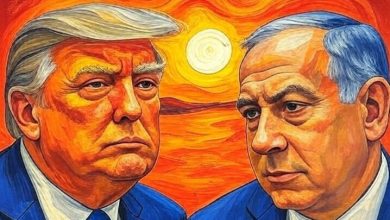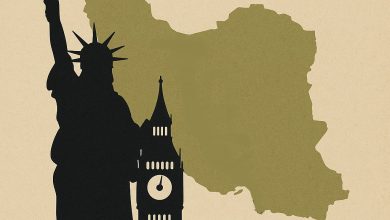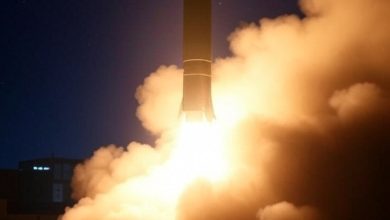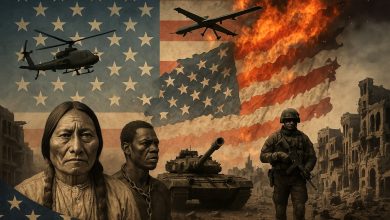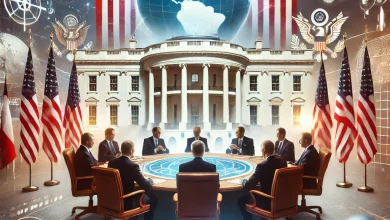Trump and the Policy of “Aggressive Isolationism” Amid the Decline of U.S. Hegemony
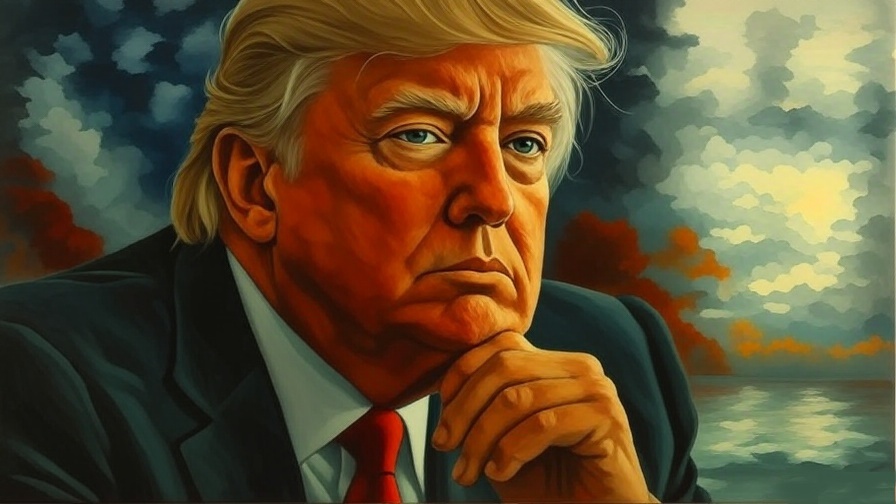
In recent decades, global public opinion has increasingly viewed the White House and the U.S. Congress as key drivers of escalating tensions in international relations. The United States, once recognized as the uncontested hegemon of the international system after World War II, now faces a growing decline in power. This decline has significantly weakened Washington’s ability to contain emerging alliances such as BRICS (comprising China, Russia, India, Brazil, South Africa, Iran, Egypt, Indonesia, and others). Should this trend continue, much of the global population may shift toward the economic, financial, and political system represented by BRICS—a shift that could structurally accelerate the erosion of America’s economic position.
From a policymaking perspective, Donald Trump—representing the interests of certain segments of the U.S. economic, political, and intellectual elite—pursued a hybrid strategy that can be described as “aggressive isolationism.” His actions not only failed to diminish the cohesion and influence of BRICS, but in many ways indirectly reinforced the group’s convergence. BRICS members, by virtue of their geostrategic locations, exert considerable influence over the world’s main energy transit routes.
Iran, controlling the Strait of Hormuz—the world’s most vital oil chokepoint—plays a critical role, with nearly 20% of all global oil passing through the strait. Meanwhile, Indonesia, positioned at the Strait of Malacca, strengthens BRICS’ leverage in East Asia, as nearly one-quarter of global maritime oil trade flows through this passage daily. Egypt, by controlling the Suez Canal, indirectly shapes the strategic importance of the Bab el-Mandeb Strait, making it a focal point for global energy and trade flows.
The combined weight of these three critical chokepoints (Hormuz, Malacca, and Bab el-Mandeb) enables BRICS, should it act in greater unity, to influence a substantial portion of global energy and trade. This capacity grants the bloc a decisive advantage in redefining the world order.
By contrast, the hope of Western industrial powers remains pinned on U.S. leadership in managing the remaining 60% of global energy resources. A significant share of these resources lies in Latin America and the Caribbean—regions traditionally defined in U.S. foreign policy as its “backyard.” However, if Washington loses control over these regions, its geopolitical and geoeconomic standing vis-à-vis BRICS will weaken further. Historically, during its isolationist periods before both World Wars, the United States directly or indirectly dominated Latin American governments, exploiting their resources. Trump, through tools such as economic sanctions on Venezuela, sought to restore this sphere of influence and reestablish a security buffer around the Americas.
In the Middle East, Trump’s approach was also rooted in perpetuating conflict and instability. The transfer of security data collected by the National Security Agency (NSA) to Israel illustrates the overlap between White House and Tel Aviv policies in managing regional crises. Moreover, U.S. financial institutions such as the Federal Reserve, Wall Street, and NASDAQ have sought to sustain the dominance of the dollar via transnational bodies like the International Monetary Fund and the World Bank. Yet, this effort increasingly confronts challenges from rising alternative currencies and regional monetary agreements.
Overall, U.S. foreign policy under Trump adopted a dual character: on the one hand, aggressive and threatening measures to maintain supremacy; on the other, isolationist tendencies and an inward focus driven by domestic socio-economic pressures and structural changes in the international system. This behavioral duality has not only accelerated the decline of U.S. hegemony but also produced a contradictory global image of Washington’s role in managing world order.
The central question, therefore, is this:
Amid America’s hegemonic decline, what role has Trump played in redefining and executing U.S. foreign policy, and to what extent has he been able to resist the structural rise of new global actors?


